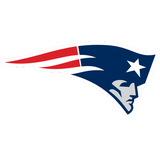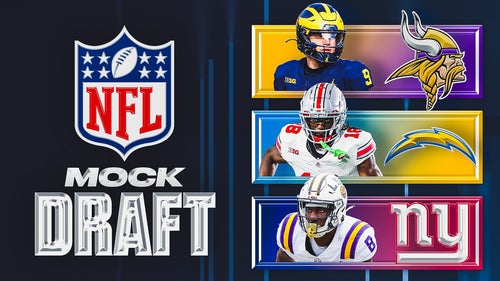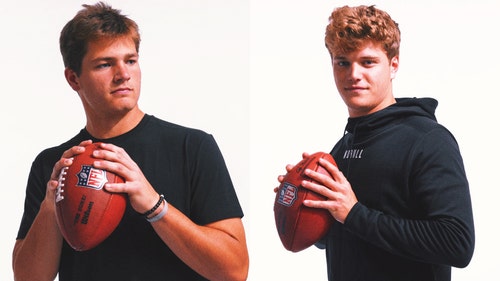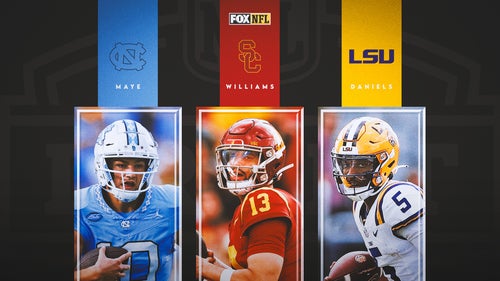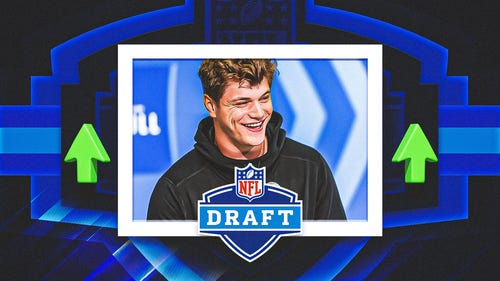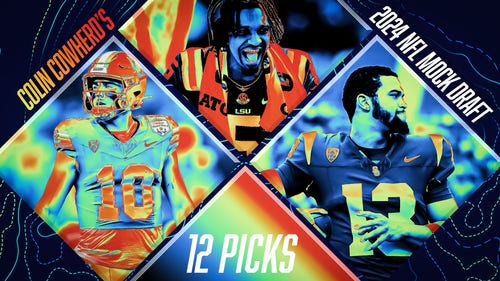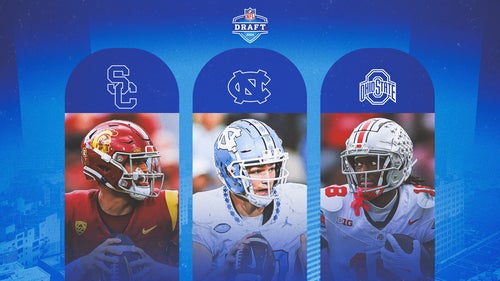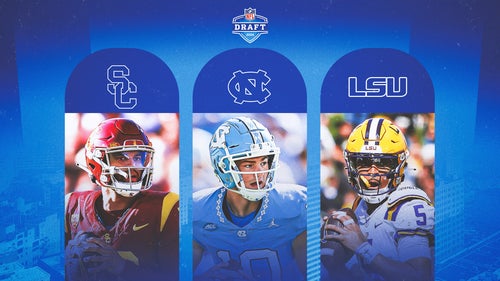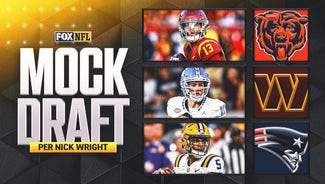
Meet Matt Patricia, Belichick's rocket scientist and right-hand man

FOXBOROUGH, Mass. — In 2004, when the Patriots were at the height of their dynasty, they put out word that they had an opening for a "coaching assistant," an entry-level position. A Syracuse football grad assistant named Matt Patricia applied, was summoned to New England and found he would be interviewing with Bill Belichick himself. Belichick grilled Patricia on plays, schemes and terminology. He kept pushing for more detailed answers, probing deeper with his questions, putting Patricia under constant psychological pressure.
Patricia left the interview wondering, what just happened? He had studied aeronautical engineering at Rensselaer Polytechnic Institute. Firms such as Boeing, General Electric and Lockheed Martin had flocked to RPI to recruit bright minds like him. But this Belichick interview, Patricia would later tell his friends, was the hardest interview he ever had.
The Patriots sent Patricia home around midday, earlier than he expected, and he spent the trip back replaying the conversation in his head. He didn't know that everyone who works or plays for Belichick is at some point subjected to intense evaluation. Belichick needs to know that he can trust you, that you can deliver, and then maybe he'll give you some responsibility, and then some more, until, a decade later, you're his right-hand man running his defense.
Patricia's phone rang. The Patriots. The job was his, but they wanted an answer immediately. He hesitated. Understandably, he told them he needed to consult his wife first.
The Patriots pulled the offer. If Patricia couldn't answer them then, they figured, he wasn't that committed. He wouldn't fit their culture.
Patricia freaked out. He called Nick Carparelli, a friend who had worked at Syracuse and also as the Patriots' director of operations under Belichick. Carparelli knew the organization well. He called a Patriots assistant and stressed how much Patricia really, truly wanted the job. The next day Belichick called Carparelli back. According to Carparelli, this is how the conversation went:
"What's up with this kid Matt Patricia? Should I hire him?"
"Absolutely, coach."
"Is he going to flake out on me? Does he really want the job? Or is he going to leave midseason?"
"Coach, trust me."
"Nick," Belichick said, "if I hire this kid and it doesn't work out, I'm going to kill you."

Belichick felt strongly because, the way he runs the Patriots, his coaching assistants serve a vital role. More than most NFL coaches, Belichick morphs his defense each week, tailoring it to stop that specific opponent, requiring endless amounts of preparation. The assistants study hours of film, write scouting reports and handle whatever work that trickles down from the coaches. They do a lot of necessary but grueling grunt work.
Belichick likes hiring assistants young because they have a "clean mind," says Mike Judge, a former Patriots coaching assistant, and Belichick can program them to think the way he wants. Josh McDaniels was selling plastics in Cleveland when Belichick hired him. Bill O'Brien had no NFL experience and was the offensive coordinator on a Duke team that had just gone 0-12. Eric Mangini was a Browns ball boy and a public relations assistant.
When the Patriots brought Patricia in for an interview, his résumé wouldn't have caught the eye of many NFL teams:
Patricia spent his first two years out of college working at Hoffman Air & Filtration, where he helped sales reps supply industrial blowers to wastewater plants. The sales reps loved him, called him brilliant, and so did his colleagues. He convinced them to use computers and input data in spreadsheets, and it streamlined Hoffman's entire ordering process. The market for selling blowers was competitive, says Jim Ward, Patricia's boss at the time, and the new computer system allowed them to "focus more on the strategic side of the sale. It gave us more time to think: What more can we do to position our products better?" Patricia became a rising star in the engineering world. General Electric and General Dynamics showed interest in him, according to his father, Ed. Westinghouse reportedly offered him a job maintaining nuclear subs and aircraft carriers, for a salary close to six figures.
Then fall came around, and Patricia smelled the fresh-cut grass of the local football fields and realized he missed the game. Through his RPI connections he got a job coaching the Amherst defensive line, for less than $10,000 a year. He rented a room in another coach's apartment and rode his bike to the football facility up a hill each day, dodging passing cars, questioning his decision whenever one came too close...
When Belichick hired him as an assistant, Patricia felt indebted. He worked so hard and watched so much film that he often ended up sleeping at his desk at Gillette. At one point, he stashed an air mattress there for convenience. Patricia told one friend that defensive coordinator Romeo Crennel worried for his health. Boy, you've got to go home and sleep! Take a break. Relax a little.
But those nights reminded Patricia of his RPI days, when he pulled all-nighters studying for engineering exams, chugging Mountain Dew and downing Pixy Stix powdered candy to stay awake. Watching film, Patricia used the same note-taking technique he had developed at RPI. Engineering students usually were allowed to bring a page of notes to exams, and Patricia had a reputation for having arguably the best. "You'd look at it and it'd be like hieroglyphics," says Mike Mucci, another RPI engineer. "All these crazy equations."
Patricia's specific engineering discipline had also prepared him well for hours of meticulous film study. "[Aeronautical engineering] promotes a very structured, very rigorous, very systematic way of thinking," says John Tichy, a long-time RPI engineering professor. Building a rocket and getting it off the ground requires more precision than building a bridge that will stand in place. With the rocket, Tichy says, "every little last decision is delicate."
With that attention to detail, Patricia, a lowly coaching assistant, established himself as one of the smartest coaches in any room. When Belichick rattled off the daily practice schedule, Patricia organized everything down to the minute, in his head. When Belichick approached the coaching assistants with special "projects" — opponents' tendencies he wanted studied on film — Patricia juggled eight, nine, 10 of them at a time. "He'd be helping crack the code for that week's opponent," says Judge, the coaching assistant who worked alongside Patricia in 2005. "There were guys in the building that didn't see [a tendency on film] until he pointed it out."
Patricia told friends that when he arrived, Belichick was still "a pencil and paper guy," writing film notes by hand. Patricia helped digitize the Patriots' film review system, just as he did at Hoffman. He ran a seminar teaching Patriots rookies the video system, gave older coaches basic computer training and showed the savvier coaches how to input data into spreadsheets, analyze it and incorporate the information into their weekly game plan.
Patricia told one friend that he saved Belichick "two to three hours" a day because the new system gave Belichick, a notorious film junkie, an easier way to study tape. Which gave Belichick that much more time to scheme and strategize for each week's opponent.

Belichick started taking Patricia on scouting trips, giving him a glimpse into his world. "[Matt] logged a lot of hours driving Bill around," says former Patriots lineman Matt Light, who is friends with Patricia. "[Bill] wanted him close because he saw the value in a guy like Matt. People talk about players, but a really good coach? That may be more rare than an elite corner or quarterback or defensive end. They're very difficult to find in this league."
Maybe Belichick saw a bit of himself in Patricia. Like Belichick, Patricia played football at a Division III school: Belichick attended Wesleyan, a private liberal arts college in Connecticut, and Patricia attended RPI, a private research college in Troy, N.Y., whose team mascot is the Engineers. Patricia and his teammates took calculus, physics and chemistry classes as requirements. They played home games on a humble patch of grass in the heart of campus, in the shadow of engineering and architecture buildings. Their rivalry games had trophies that you might expect from an engineering school: a pair of Dutch clogs, a surveying tool and ... a shot glass.
Like Belichick, too, Patricia wasn't an NFL-caliber athlete. He arrived at RPI listed as a 5'11", 200-pound offensive lineman, and he sat for his first two years and played sparingly his junior year as he tried adding weight. By senior year, he still only weighed 227 pounds. He platooned at guard thanks to his intelligence, work ethic, and strong will.
In one game against Albany, when Patricia had trouble blocking a defensive lineman who looked close to 300 pounds, people approached offensive line coach Ray Moran telling him to sub Patricia out. Instead, Moran gave Patricia another chance. He ordered Patricia to cut block the defender every play, which meant diving at the man's legs to "cut" him down.
"You need to do whatever it takes to do your block and get him on the ground," Moran told Patricia. "You need to put your self pride aside. Or you won't play anymore."
Patricia cut block his defender the rest of the game, and the Engineers won, 41-7. The cut block became Patricia's signature move. His teammates gave him a nickname: Scissors.
After two years, in 2006, Belichick promoted Patricia to coach his linebackers, another sign Patricia was gaining Belichick's trust. The linebackers are usually the heart of Belichick's defenses, the players he gives the most responsibility. The group Patricia inherited included veterans Junior Seau, Tedy Bruschi and Mike Vrabel. Patricia's friends joked: What could he teach those guys? Seau and Bruschi were older than Patricia; and Vrabel was only a year younger.
Their linebacker meetings often got rambunctious, like a class of kids taking advantage of a substitute teacher. "We busted his balls, without a doubt," says Vrabel, who was notorious for his sarcasm. If Patricia made a mistake, they pointed it out. If Patricia got too repetitive, they complained. They even pressured Patricia to end meetings early, threatening to walk out.
"Listen up!" Patricia would say. "I'm trying to get something accomplished here!"
Sometimes Belichick sat in on the meetings "just to make sure everyone would sit there and really listen," says Jerod Mayo, who joined the group a few years later. "Make sure they would stay the entire meeting." Belichick observed, watched film with them and interjected at times. Taking grief during defensive meetings had been a rite of passage for him, too, when he got his break coaching Lawrence Taylor and the Giants' defense in his early 30s, working under Bill Parcells. Pepper Johnson, a member of that Giants unit, told Rosevelt Colvin, one of Patricia's linebackers, that the Giants had treated young Bill Belichick the same way. "We're leaving!" the Giants would threaten. "We're done!"
In time, Patricia gained the respect of the room thanks to the thoroughness and quality of his coaching. He still pulled all-nighters studying film, looking for any weakness the Patriots could exploit. He dug up film from five years earlier that would prove useful. He used analytics before analytics was a trend. He broke down plays as finitely as he could: by formation, down and distance, spot on the field ... specific time in the calendar year. When the linebackers gave him lip, he'd joke, I could've been a rocket scientist, you know!
"He always had us very prepared," Vrabel acknowledges.
Then Bruschi retired, Seau retired and Vrabel was traded to the Chiefs. And the Patriots started cycling in younger, cheaper linebackers — Mayo, Gary Guyton, Pierre Woods, Rob Ninkovich, Brandon Spikes, Dont'a Hightower, Chandler Jones, Jamie Collins. It became Patricia's job to ensure they filled their roles like Bruschi, Seau and Vrabel.
The younger linebackers listened with rapt attention as Patricia taught them their new game plan each week. The son of two teachers, he had a way of explaining complex ideas. He assigned some of them film-study homework and asked others to come in for tutoring sessions. He showed them how to read the smallest tendencies, like how the slot receiver's foot placement on the line can tell which way his route will go. Once, preparing for the Titans, Guyton recalls that Patricia held a seminar entirely on Chris Johnson draw plays, because the Tennessee running back had just burned another team on a long draw. Patricia showed a 90-play reel and kept pausing and rewinding the footage, pointing out all the keys.
After defensive coordinator Dean Pees departed in 2010, Belichick assumed most of the job's responsibilities, but he eventually put Patricia in charge of calling the defensive plays. Two years later, in 2012, Belichick gave Patricia the defensive coordinator title, too, and then started giving him more and more freedom.
New players kept cycling in, and the Patriots kept winning, and Belichick seemed to have an epiphany. If he jettisoned players whose performance dipped, who were approaching a big payday, or who just didn't fit his culture ... Patricia could still take the remaining players and build a defense that would maintain a certain level of play. As Light put it: "If [Patricia] can look at a rocket and figure out how the thrust is going to interact with the gravitational force, he can look at the opponent's scheme and get fairly creative, right?"'
On the Patriots' sideline, when the New England defense took the field, Patricia never seemed more than a few feet from Belichick's side. He was the one sporting the dark, heavy beard, the baggy red pullover and the backwards cap. Always with a pencil behind his ear. Casual fans saw him on TV and wouldn't know his name if not for the infographic. They joked that Patricia looked like someone Belichick had created in a lab, the perfect sidekick to Belichick and his hoodie look.

As the defensive coordinator, Patricia made calls directly into the helmet of Mayo, the middle linebacker, like a command center beaming an astronaut directives. Patricia talked almost nonstop, conveying to Mayo various concepts to tell his teammates, rambling on about reads and adjustments, trying to cram as much information as he could before the mic shut off, in accordance with NFL rules, with 15 seconds left on the play clock.
When undrafted rookie Malcolm Butler intercepted Russell Wilson at the goal line to win Super Bowl XLIX, Butler credited Patricia for preparing him to expect a throw, when millions of people at home thought Seattle would run Marshawn Lynch. With Patricia in his ear, Mayo found most of what he said came true. "It was like having a cheat sheet for the exam," Mayo says. "Like having the answers for the test."
The New England defense is currently undergoing another makeover. Mayo retired in the offseason at age 29, and Belichick traded away Jones a year before he would become a free agent. Then at the trade deadline, Belichick dealt Collins, another impending free agent. Media reports suggested the Patriots were unhappy with Collins' habit of freelancing off the game plan. But whatever the case, in about eight months the Patriots lost their captain linebacker and their two best pass-rushers — the latter two by Belichick's choosing.
Now two-thirds into the season, the Patriots defense is still searching for its identity. It looks passive at times and seems to lack the firepower of years past, and the Boston media has begun criticizing Patricia. During a conference call last week, a local reporter asked Patricia if he felt "disappointed" in himself for not optimizing Collins or Jabaal Sheard, another pass-rusher whom the Patriots had just benched. Patricia bristled at the question and said it was a long season and he coaches the players he has available.
It is perhaps the most difficult task Belichick has ever given Patricia, his resident rocket scientist. Can he take those available players and build a classic Patriots defense by January? If so, New England will contend for its fifth Super Bowl title under Belichick. If not, the defense will be blamed for undermining Tom Brady and an elite offense. (The Patriots declined to allow Patricia to be interviewed for this story.)
At some point, too, other teams may try poaching Patricia for their head coaching jobs. They started calling last season. The Browns interviewed Patricia before hiring Hue Jackson. Not long afterward, Patricia had a conversation with his father, Ed, about the coaching carousel. He told his dad that he was content staying in New England. He had built a life here with his second wife; they had gotten married in Aruba, with Belichick and several other Patriots coaches in attendance. Patricia also had three young children to think about, all under the age of 6, and his in-laws lived nearby, close enough to help out as he ground through 18-hour days at Gillette obsessing over the defensive game plan.
His father agreed, and wondered why he would be in a hurry to leave Belichick's side. For all the coordinators Belichick has groomed and seen move on — McDaniels, Mangini, O'Brien and so on — none has yet been able to recreate the winning culture Belichick has in New England. A culture that churns out young, talented coaches, whose work, in turn, strengthens that very culture.
Patricia's father wondered aloud, "Where else can you go where every year you're in the playoffs, you're with top talent, and you're with probably the best NFL coaches to come along in a long time ... and you can learn from that guy?"
Patricia nodded along, knowing full well the answer.
This article originally appeared on the MMQB.

